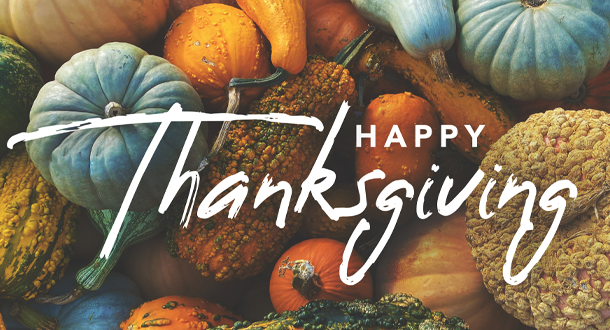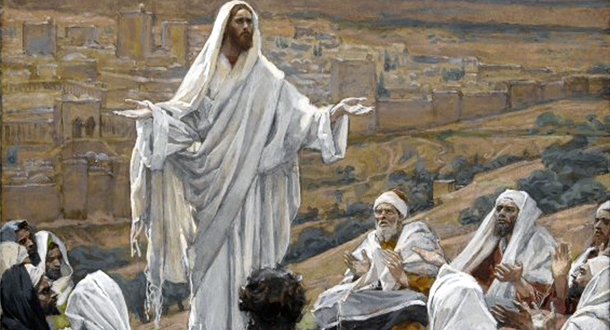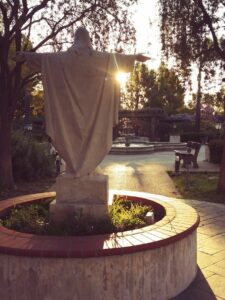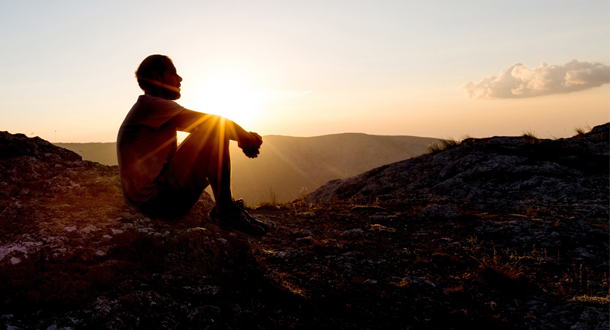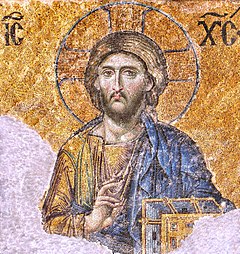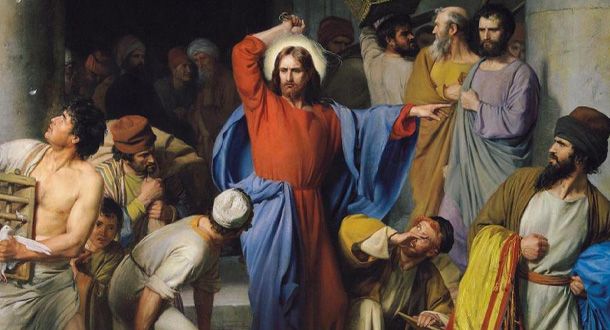
Scripture:
Revelation 20:14; 11–21: 2
Luke 21: 29 – 33
Reflection:
Heaven and earth will pass away, but my words will not pass away. -Luke 21:33
Tomorrow at sundown we begin a new liturgical year with the beginning of our celebration of the season of Advent. There always needs to be an end before there is a beginning, and the readings today are about the passing away of Heaven and Earth. We have many names for this: the end of time, the apocalypse and the Second Coming of Christ. From time to time, we may see a person standing on a street corner with a sign, “The End Is Near”. Even though we ponder on the message of the sign, we don’t know when or how. We read in the New Testament that there will be signs. The reading from Revelation speaks of “the sea giving up its dead” along with Death (evil) and Hades, the place of the dead. We are also told that all “the dead will be judged according to their deeds”. Those who fail the judgment of God end up in a pool or lake of fire, which symbolizes a second death or the final destruction of death. The last section of this passage then speaks of “a new heaven and a new earth.” These are places joined in a new beginning where death does not exist. The victory over evil has been won and evil has been wiped out of existence. All that is left is a “new Jerusalem”, the holy City of God. In another commentary that I read; it was more of a restoration of a transformed, this-worldly reality. All had been restored to the state it was at the beginning of time when God first created it. Imagine all living things restored to their most perfect and holy state. That is something that is a challenge to wrap one’s mind around and yet that is why we pray, worship, and believe in the living God. We know that all things are possible with God, who alone knows when this restoration will occur. We must not sit around, waiting for it to happen. As we go about our day we must continue to pray, worship and do good works to build the Kingdom of God in the people that we work with and our families.
Advent is a time for us to begin again, working to become the person that God created us to be. Yes, the end will come for all of us; however, today, we have an opportunity to rekindle our efforts to reflect the love, peace, and mercy of our God.
On a side note, the Book of Revelation is one of the most difficult books of the Sacred Scriptures to understand or comprehend. It is meant to be understood figuratively and not literally. However, the imagery contained in these passages can open us up to a deeper understanding of all the Scriptures.
May the new liturgical year bring many blessings and graces to you and your family.
Linda Schork is a theology teacher at Saint Xavier High School in Louisville, Kentucky.

